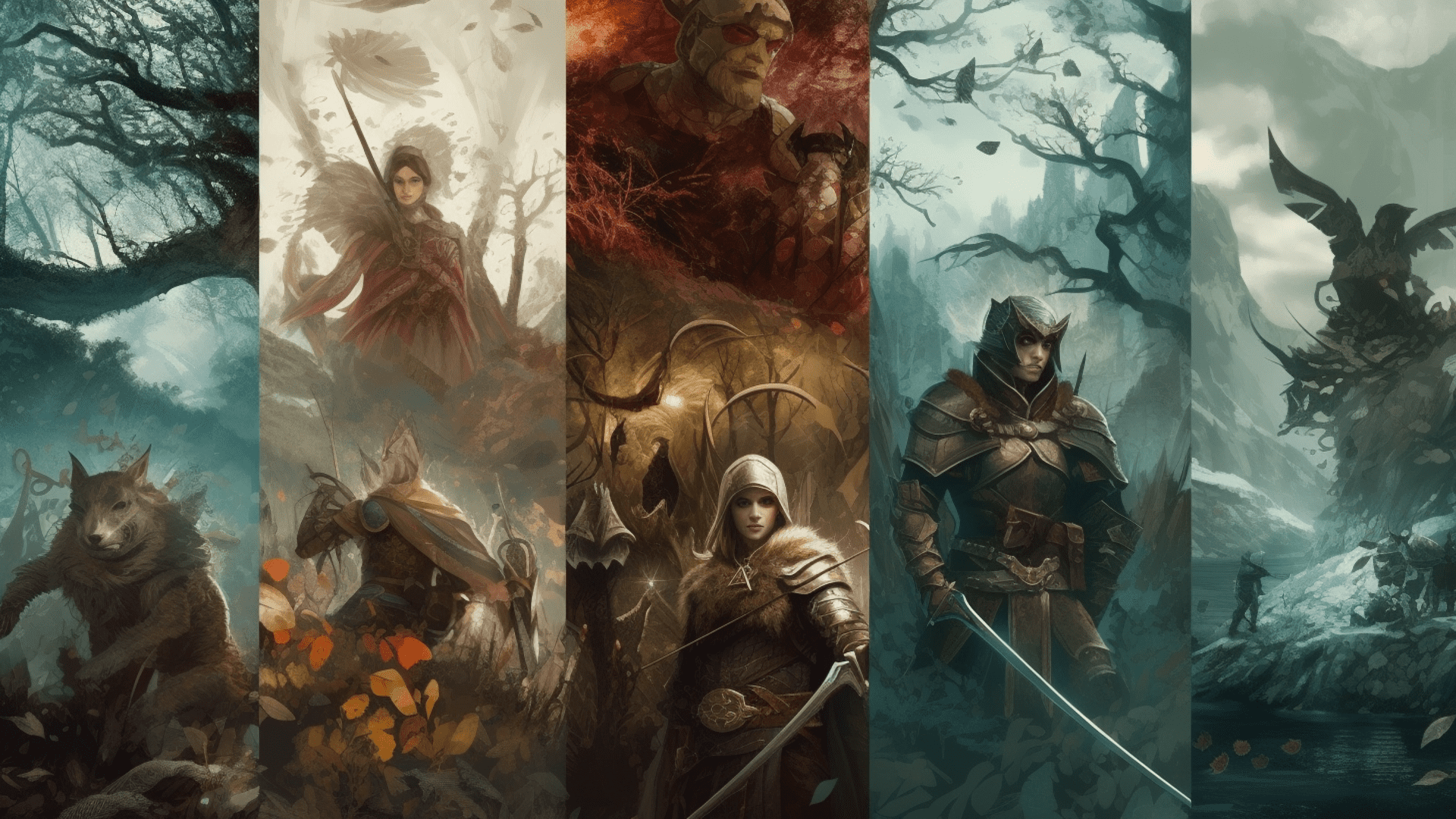
Features of Different RPG Genres
The RPG genre has many subgenres and subtypes, each with unique characteristics and features.
Classic RPGs
Traditional RPGs originated back in the 1980s. These games usually have a narrative plot where gamers get into the role of the characters and explore fantastic worlds. Often, users can choose their class, race, and specialization of the hero, improving it through experience and combat skills.
Classic RPGs almost always contain many quests waiting to be completed and storylines that players can explore, deeply immersing themselves in the atmosphere of the created universe.
Action/RPGs
This sub-genre combines elements of RPG games and action games. Unlike traditional options, the combat system and real-time action receive more attention here. Gamers can choose their class and improve their skills and weapon techniques.
Action/RPGs also offer an open world that players can explore by completing quests and experiencing various heroic adventures. The Action/RPG gimmick is that gamers can influence the passage through their reactions and tactical maneuvers, while in the classic system, everything depends on the level of pumping.
Tactical RPGs
Another very interesting subgenre focuses on the development of strategic games and combat tactics. Gamers manage a team of characters and place them on the battlefield before the battle, in which they need to apply different tactics actively. Tactical RPGs often feature in-depth character management, customization, and a strong focus on story and storytelling.
Multiplayer RPGs
MMORPG game is a sub-genre where gamers play together in one virtual world. These projects usually have a lot of users and a huge open universe, which can be explored on their own or together, completing tasks in whole groups. And often, to pass particularly difficult quests and get rare resources, a large squad of well-pumped and well-dressed characters is needed to coordinate work.

Life Simulators
Here, gamers manage a character, performing routine actions that are part of daily life. These games provide an in-depth control system where gamers interact with the world around them, interact with different NPCs, and perform various tasks. One of the most famous games in this genre is The Sims.
Roguelike RPGs
This is the name given to RPG games with randomly generated levels and a high degree of difficulty. Here gamers often start with an empty inventory and few lives. Players must explore randomly generated locations, fight enemies, and search for items and improvements to survive. Games of this genre are usually highly replayable.
Conclusion
In conclusion, the RPG genre is diverse and extensive, with many interesting subgenres. Each subgenre offers players their style of play, which varies depending on what the gamer prefers. Choosing a subgenre depends on personal tendencies, generally on mood. But in general, the RPG remains the genre that takes players to fascinating worlds and offers exciting adventures.


